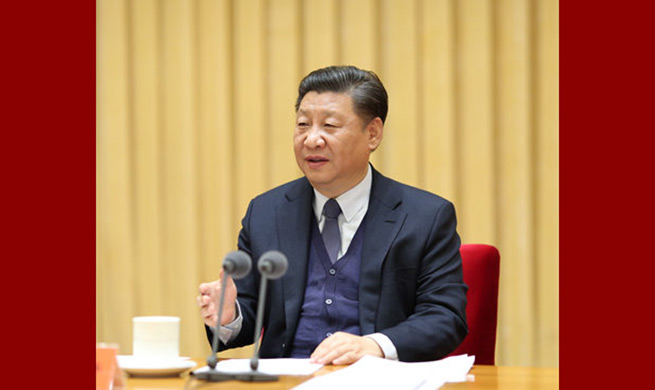KABUL, Jan. 17 (Xinhua) -- Directorate of public libraries, one of the oldest cultural entities in Afghanistan, is largely forgotten by both the government and international agencies.
Established in 1966 in the heart of the capital Kabul under the name of "Book for All," the state-owned public library contains up to 150,000 books in various languages and topics, such as Farsi (Persian), Pashto, Arabic, English, Russian, French, German and Turkish, with a vast majority in Persian and Pashto, two major languages spoken in Afghanistan.
Book collections from the most ancient era could also be found in the library.
Protracted civil wars and conflicts in the country have taken almost everything from the library, even completely destroyed the building once in the 1990s. After the overthrow of the Taliban regime in 2001, the government reconstructed the library building and opened it for the public.
"The library was nothing, even the building was like a ruined place in the past. It was a forgotten administration, but we have brought tangible change in it, in the recent two years," said Hamidullah Shahrani, who has worked for five years as the director of Afghanistan public libraries.
The library currently has 34 staff in its main office, and a total of 70 employees around Kabul.
The study room, with a number of desks stretched among chairs arranged at the two sides, barely sees any visitors currently, as it is winter and school holidays.
Students usually visit the study room during spring and summer, when they come to collect their textbooks and related reference materials in the library.
The number of visitors is on constant rise. Nowadays, at least 200 people, mostly school and university students, visit the library during the academic year, according to the official.
"I am a student of Social Science faculty at the Sheikh Zahid University, and visiting here to search various references to help complete my monograph," Yar Mohammad Ayubi told Xinhua.
The library used to run a mobile bus library touring schools, parks and orphanages to give school children and other kids access to books.
However, the bus library stopped operation after the Taliban and the Islamic State militant groups escalated their attacks in Kabul, inflicting heavy tolls mostly on civilians.
A small wooden computer-lab framework, but not equipped with computers, was seen inside the library, which Shahrani was hopeful to soon get operational to help visitors receive online information.
The library is also planning to carry out digitalization of the books and be equipped with modern technology, the official added.













